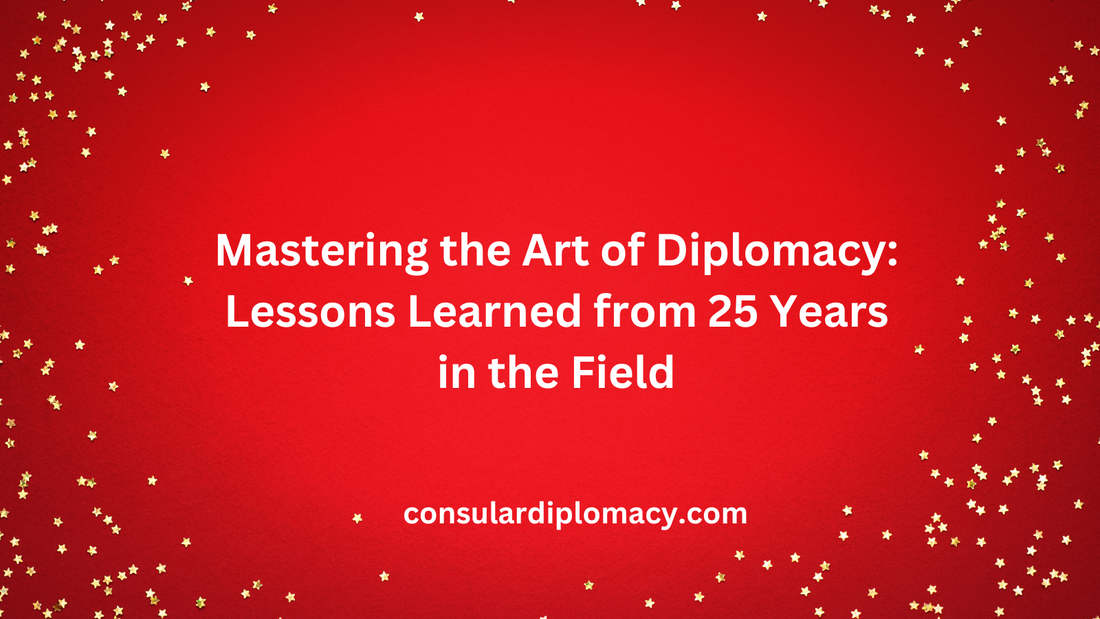 Today is an exceptional day for me. Twenty-five years ago, I joined the Foreign Service. It has been an extraordinary journey with ups and downs and amazing experiences, from meeting heads of state and representing Mexico in our Independence Day celebrations to organizing football tournaments for children and writing thousands of documents. One of the most significant rewards of my diplomatic career has been working with my colleagues, especially from the 15th generation of the diplomatic academy. Cheers to the members of my chat groups Vamos Mexico, Core Group, and Consejeros. Besides, I have been fortunate to have great bosses from whom I learned a lot throughout these years. I also had the unique opportunity to assist Mexicans abroad in distress in horrendous circumstances, including terrorist attacks, hurricanes and earthquakes, domestic violence, and more. Consular protection is where foreign policy meets people; I cherished my work in that department. While overseas, I had the opportunity to work for the Mexican community, which was a humbling experience. Mexicans abroad are the hardest-working people anywhere and some of the most patriotic people. Celebrating with them civic ceremonies and their hometowns' Saint's feast day are some of the highlights of my diplomatic career. Special thanks to the people of El Refugio, Jalisco; Sombrerete, Zacatecas; Axochiapan, Morelos; San Agustin Yaterani, Oaxaca; Las Margaritas, Chiapas; and many more towns across Mexico. I joined the foreign service during the tenure of the first female Minister of Foreign Affairs, and I am thrilled that we have our fourth female today. However, there is still much to do to fully attain gender equality and inclusion of other groups. The world has changed a lot since 1998. The digital revolution is pushing forward, regardless of its impact on society, government, and people. With the arrival of Generative AI, we are beginning another disruptive era. Diplomacy has also moved forward. Terms such as Tech and Digital diplomacy did not exist when I started my diplomatic career. Besides, while public diplomacy was disappearing in the US, it was exploding elsewhere, giving a new push for studying diplomacy. In recent years, there has been a boom in diplomatic studies, bringing perspectives from the Global South, thus moving slowly away from a Western-centric lens. Consular diplomacy as a field of study did not exist in 1998. However, the combination of lower transportation costs, the information and communications technology revolution, and the socialization and societization of diplomacy gave way to the rise of consular affairs as a priority to not only the ministries of foreign affairs but also politicians, the media, and the public. In my blog post, Consular Diplomacy bibliography LINK, you can find a list of books, essays, and documents on the subject. Nowadays, my focus is learning about the impact of technology, especially artificial intelligence. You can check out my series on Diplomacy 4.0, including the following posts:
I am looking forward to what my diplomatic career will take me next, but I am always ready to learn new things. DISCLAIMER: All views expressed on this blog are that of the author and do not represent the opinions of any other authority, agency, organization, employer or company.
0 Comments
Your comment will be posted after it is approved.
Leave a Reply. |
Rodrigo Márquez LartigueDiplomat interested in the development of Consular and Public Diplomacies. Archives
May 2024
Categories
All
|
